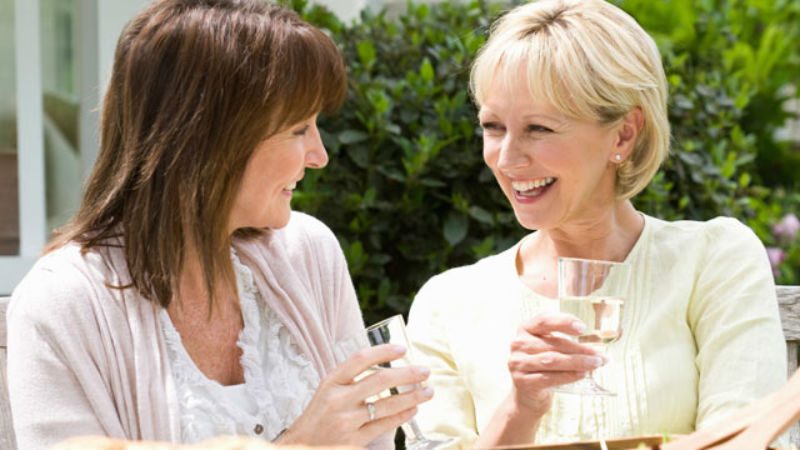An older lesbian reflects on finding love later in life.
I’ve always been at least a decade behind, if not two, and I blame it all on being a lesbian in the 1950s and ’60s. When girls I knew in high school were dancing awkwardly to “Satisfaction” with boys whose names they wrote and rewrote on their Pee Chee folders, I was trying to talk myself out of being in love with my best friend, knowing it would result only in pain. By the time I was in college and still trying to evade my mother’s questions about “just what kind of a relationship” I was having with my roommate, those high school chums were getting married, often to the first guy who loved them back.
I did the same thing, years later, moving in with my first serious girlfriend, long before I had any sense of what my own life was all about. Yet, when women my age were having their first, second, and even third child, I’d left that “marriage” and was dating seriously, nearly 20 years after most other 35 year olds had begun that ritual.
Knowing this meandering path I took along the road of relationships, it’s no surprise that I was 50 before I found the person with whom I really wanted to make a life. I’m 65 now and we are practically newlyweds. On a romantic level, that one in which we dream of walking on tropical beaches hand in hand, I often lament that it took us so long to find each other. But the reality is that it never would have worked if we’d been introduced when I was 20 or 30 or even 40 because I was still way too far behind in my development.
Let me add here that, on the surface, I looked like anyone my age. I had a successful career, I was lucky to get to travel, and I had friends and family who made my life rich and full. I just hadn’t developed quite as much as I needed to in terms of being able to share, and grow, and have an authentic life with another human being.
For me, this coming late to the party was a direct result of living a life without an established path to follow. I get it that no one really knows how to do a relationship, but most heterosexual kids grew up around couples they could observe and emulate, if only unconsciously. They could watch their mothers and fathers interact, they could see the roles that were available to them, and they could set to work on building the person they wanted to be. Not so much for those of us who loved that adorable blond girl in our algebra class.
I didn’t know all of that then, of course. I blundered through enough relationships that weren’t good for me and I did a bad job at a few others. When I started into my sixth decade and the world had opened itself to more people like me, I could breathe deeply for the first time. It’s what I think about when single friends my age say their relationship days are over. Not true, I think. Those of us who had to wait so long to see a future that included people like us have so much to offer at this end of things.
This isn’t the time to resign ourselves to being alone. On the contrary, it’s when we need to share the lessons we’ve learned. It’s when we know fully what we mean when we say we love someone, when the room feels large enough for us and a whole other person, and when we finally know how to truly hear and see someone else. We’re full-fledged, acceptable grown-ups now, something many of us never dreamed we’d feel in our lives. This is our time now—to reach out for someone like us, share the plentiful lives we’ve lived, and learn about the journeys we’ve all experienced.
About the Author:
Ginny McReynolds is a longtime writer and retired community college professor and dean living in California. Read some of her work at www.finallytimeforthis.com
